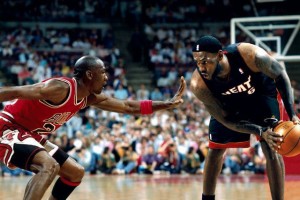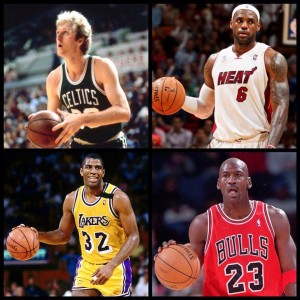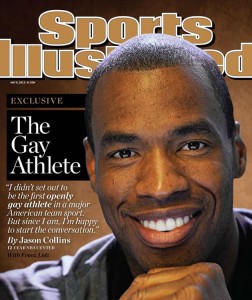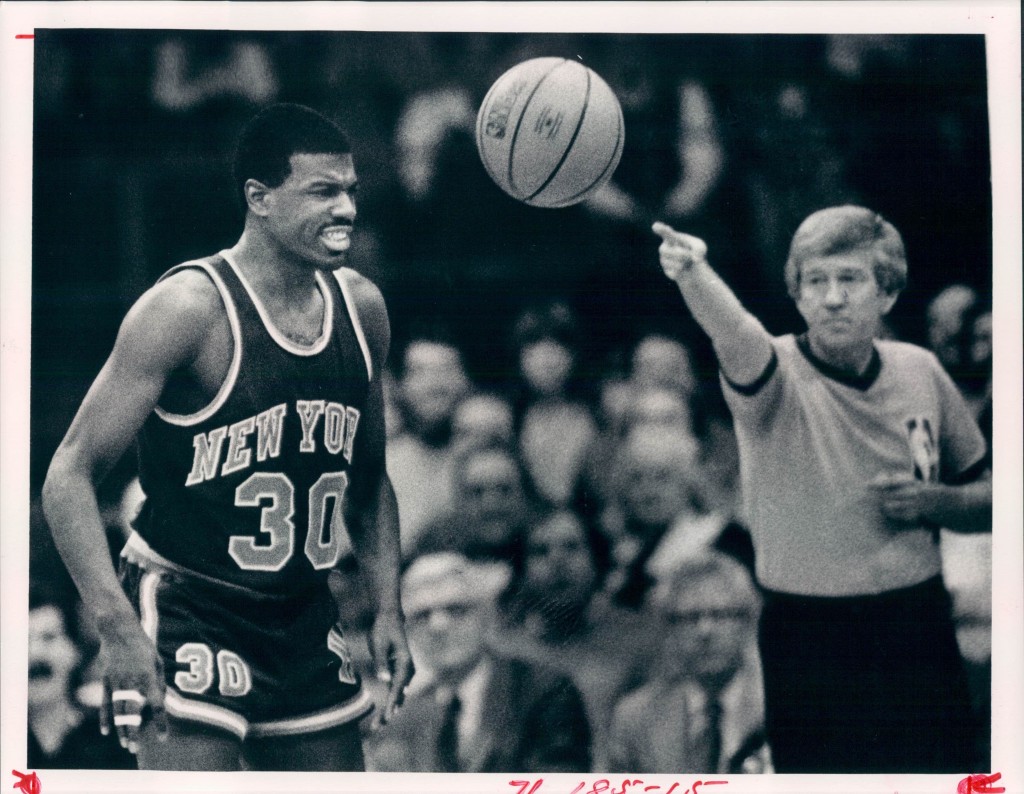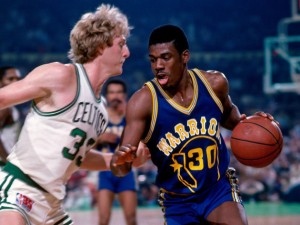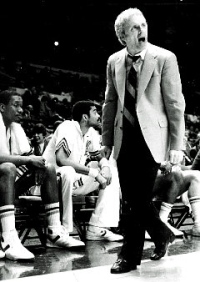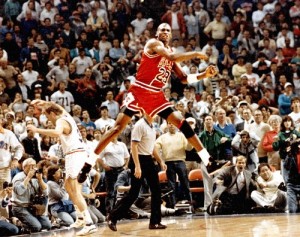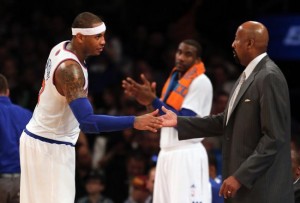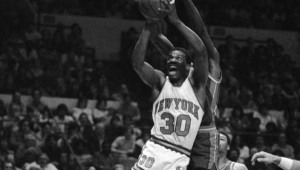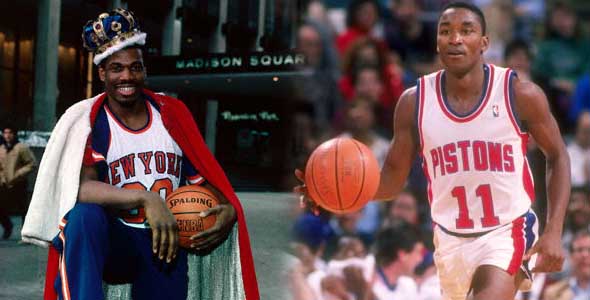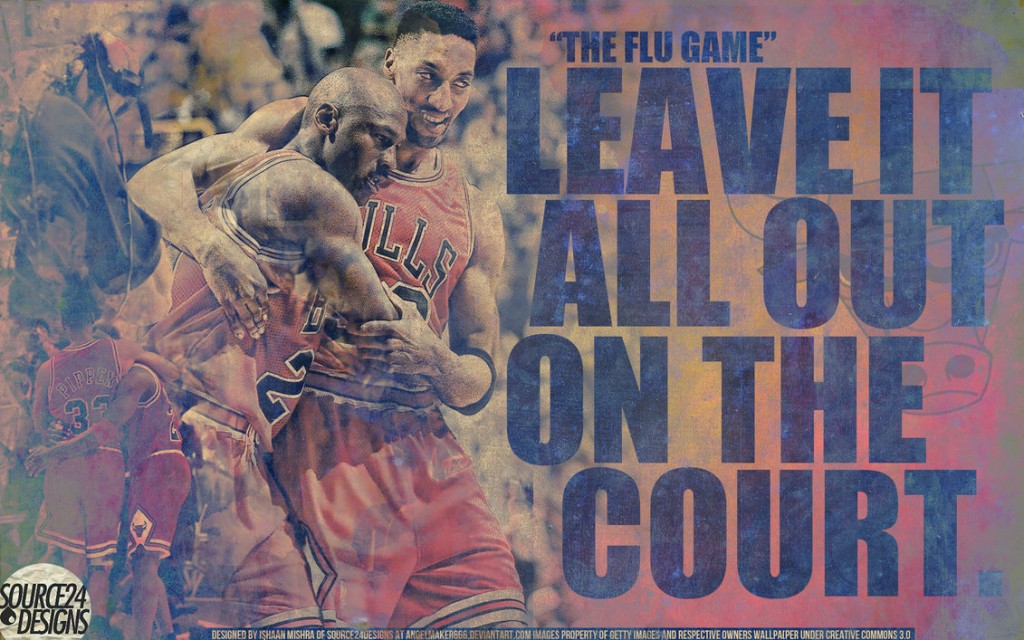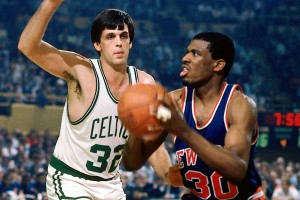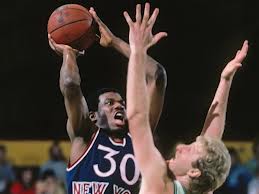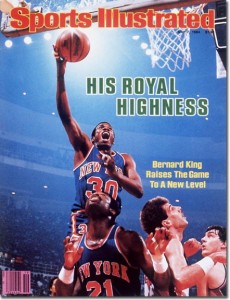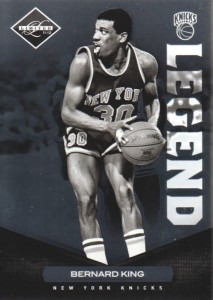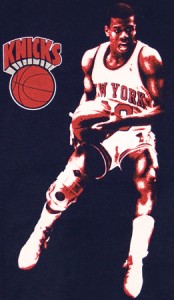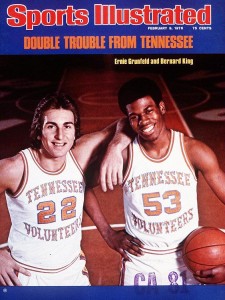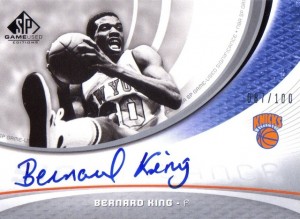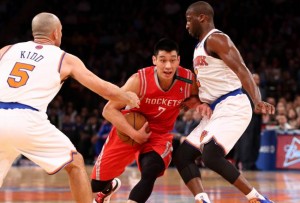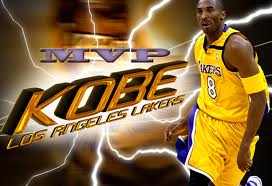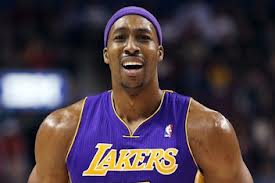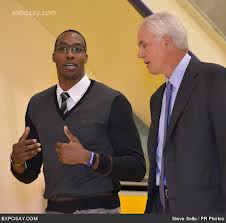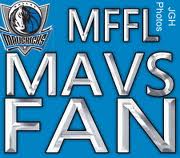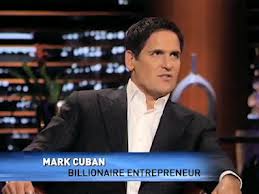The argument for today’s NBA being better than past decades stems from the growth of AAU basketball, advancements in training and nutrition, a global talent pool, and the notion that a lot more of our talented U.S. athletes are choosing to play basketball.
…compare their peaks instead. (By the way, Larry Bird won 3 championships in 13 seasons, and went 3/5 in NBA Finals. LeBron might be knocking on that door here soon)
So the argument is this: Is LeBron today better than Mike as his best? Is LeBron today better than Magic at his best? Is he better than Larry at his best? Some LeBron supporters will say that he can do what those guys can do but he’s bigger. I would disagree. I would say each of those guys did something better than LeBron. But I DO notice that LeBron may be the second best in a lot of categories compared to these guys.
Out of MJ, Magic, Larry, and LeBron, here’s who has the edge in each category by the stats and by the eye test.
Scoring: Michael
Passing: Magic
Rebounding: Larry
Defense: LeBron or Michael
LeBron may be the second best scorer of the group. He is certainly second by career and peak scoring average. LeBron may be the second best passer of the group. He has the edge in assist average as well over Mike and Larry. Larry is clearly the best rebounder of the group, and Magic actually may be second. But LeBron has an argument for that too. On defense, we know Michael at one point was as good as they come on the perimeter. However LeBron has been noted as a more versatile defender because of his size. I’m not here to debate whether he is or isn’t a better defender than Michael, but either way he’s up there as one of the best defenders we have seen that didn’t play the center position. He’s either first or second in defense out of the group of 4. And finally, LeBron posted an incredible 56.5% FG percentage this year; something only Magic has matched in his career. Magic owns the higher peak assist to turnover ratio, and Michael owns the higher career Player Efficiency Rating (PER). Michael actually owns the highest PER in NBA history. But you know who is number 2 all time in PER? LeBron.
A lot of pundits will credit the older guys with high intangibles; leadership, competitiveness, toughness, basketball IQ, “clutch” factor, etc. As somebody who doesn’t consider himself a “Witness”, but rather just a basketball fan, I can acknowledge that LeBron is truly putting it all together and most, if not all, of his mental/emotional hang-ups are in the past. He’s improving in every significant intangible category in my eyes and in the eyes of many.
So maybe a guy who isn’t known for one specific skill but who can do everything very well has a good peak argument. If nothing else Lebron’s attributes and statistical achievements (as well as the fact that he is now a champion) leave the door open for debate for those who want to go there.
Kareem was a 7’2″ player with an unstoppable shot, the skyhook. Had we seen something like the skyhook before, and have we since?
Wilt Chamberlain, Shaq, Magic, Duncan, Olajuwon, Robertson are all pretty unique players to me. You can say that LeBron is bigger than all of the perimeter guys, and more athletic, but is he truly a bigger version? Meaning, the same skills but just bigger, stronger, quicker, etc? I say nah. He’s not gonna have the footwork or smooth post game of MJ or Kobe, or the quick change of direction of…you know what, it doesn’t even matter. If LeBron can continue to do LeBron and continue to create his own lane, he won’t have to worry about comparisons with anyone.
Peep this. The cool thing about LeBron coming into the league at 18, and being the exact opposite of an injury-prone player, and being very-very good, is that he has a chance to break a looooot of records. He already has 4 MVPs at age 28. Kareem has the record with 6 MVPs. Can he snag 2 or 3 or more MVPs in his career? He has a good shot at it. LeBron also has just over 21,000 points for his career. Kareem has that record also at 38, 387. If LeBron keeps up his current rate of 27.6 PPG and stays healthy, he can catch Kareem at age 36. And even if he doesn’t do that he can catch Jordan’s career number at age 33, at his current pace. Pretty wild.
Now granted, when a lot of people think about Magic, Michael or Larry, they might be thinking about championships or the special way they played the game. The big shots. The big games. Some people don’t think LeBron will ever match what those guys brought to the table. Even if that is your stance, what if you are looking at a guy who has a chance to rewrite greatness in terms of records upon records, plus high-level defense, plus mind-blowing stats, plus a few rings…
With all of the things LeBron has already accomplished in his short career, and all the potential of what is to come, at the end of the day when you sit back and look at the body of work, could it be enough?
